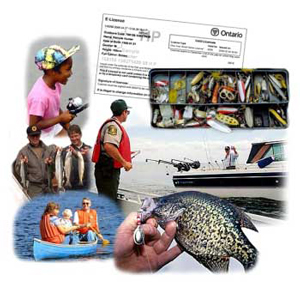THUNDER BAY – “Ontario is blind to the impact forestry is having on wildlife species across the province,” says Ontario’s Environmental Commissioner Gord Miller today in the release of Part 2 of his 2011/2012 Annual Report, Losing Our Touch. Despite a legal requirement to do so, Miller says “The Ministry of Natural Resources (MNR) does not adequately monitor forest wildlife populations and incorporate the information into its own forest management policies”.
“The business of protecting our environment and natural resources used to be a much more routine process that largely ran smoothly. I don’t know why even seemingly simple policy and program delivery has so many associated problems. I have identified the lack of resource capacity in key ministries in the past as at least part of the problem, but the current foibles, fumbles and retreats point to problems beyond capacity constraints. Perhaps we are just losing our touch,” stated Miller. In a release from the Environmental Commissioner it states, “When a class environmental assessment eighteen years ago authorized MNR to proceed with planning for timber harvesting and related activities, it also imposed legally binding terms and conditions. One requirement was the establishment of a province-wide monitoring program that would assess how timber harvesting affects forest-dwelling species”. “The Provincial Wildlife Population Monitoring Program was designed to be an essential part in Ontario’s forest management system. But the necessary comprehensive wildlife monitoring has never been done,” says Miller. “As a consequence, we don’t know if our forest management is protecting wildlife in the long term or not.” The Commissioner has determined that the legally required Provincial Wildlife Population Monitoring Program has been dysfunctional for a long time:
- MNR does not even have a list of species that it will monitor;
- Data reported by MNR have largely been collected in areas where commercial forestry does not actually occur, by third parties or by other ministry programs that have nothing to do with forestry;
- The Ontario government has never allocated adequate funding or resources for this program to carry out its original objective; most recent data obtained by the ECO showed the program was being given only 6 per cent of the funding that was originally suggested as necessary to do the minimum job required.
“There are some positive developments to report in this Part 2 of our Annual Report to the Legislature,” commented Miller. “We have some improvements in fisheries management and MNR has even discovered in Algonquin Park a surviving population of a species of fish thought extinct. Fire management in parks has a better plan. With some caveats I acknowledge that there are somewhat better wind turbine rules to protect birds and bats and the MTO’s new transit-supportive planning guidelines are an improvement. However, after those points are listed my ability to praise government accomplishments in the environmental field gets a bit limited”.
The big issue perhaps is what Miller says is a failure by MNR to monitor wildlife species in Ontario.
“MNR has failed in its duty to monitor wildlife species across Ontario’s forests,” stated Miller. “However, the Ministry of the Environment (MOE) shares the blame: MOE should have enforced the terms of the environmental assessment.”
The Commissioner said “After 18 years, the government still cannot provide Ontarians with any assurance that forest management activities are able to sustain the natural heritage in our publicly owned forests. For example, when asked about its monitoring results from 2009, MNR said it had ‘nothing to report.'” The Environmental Commissioner of Ontario is appointed by the Legislative Assembly to be the province’s independent environmental watchdog, reporting publicly on the government’s environmental decision making. For more information, read the chapter “Nothing to Report: The Failure of the Provincial Wildlife Population Monitoring Program.” You can download the Environmental Commissioner’s full 2011/2012 Annual Report, Part 1: Losing Touch and Part 2: Losing Our Touch at www.eco.on.ca


